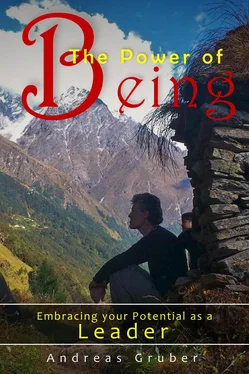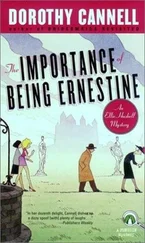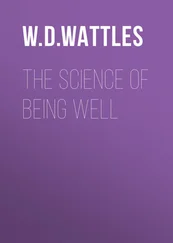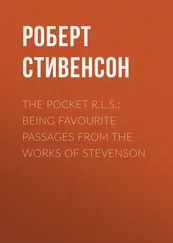1 ...8 9 10 12 13 14 ...17 (A paradigm shift , a changed way of seeing things. As identified by American physicist Thomas Kuhn , a fundamental change in the basic concepts and experimental practices of a scientific discipline. Since the 1960s, the concept of a paradigm shift has also been used in numerous non-scientific contexts to describe a profound change in a fundamental model or perception of events. https://en.wikipedia.org/wiki/Paradigm_shift )
So the first one is the view outward, the second is the view inward. We know the first type of awareness all too well, we are aware it is imperative to live what we call a normal life. The second type doesn’t correspond with our usual ideas about awareness. People like Albert Einstein were fans of the second one. One of the principles that go together with the second type of awareness that I tend to call inner awareness in this book is that it is the key to understanding the world out there. This is closely connected to the timeless advice "know thyself".
The sages never wanted us to know ourselves intellectually, but they urged us to know ourselves on an experiential basis, originating from within. Therefore without awareness, and especially the inner awareness, we will never perceive who we are, but we will always tend to fill our lives with substitutes.
According to studies the average person has up to 50,000 thoughts per day. Most of them are repetitive. I think they are not only repetitive, but also rather random and out of our control. The problem is that we often identify with them. We tend to regard them as real and ours, while it would often serve us to consider them as the daily dream or movie of our mind.
It may serve you to question the very thoughts that are flowing through your mind. As I went out on my quest, the wise men and women I met on my path initially reminded me to check my intention. I was slightly annoyed about that at times. But I knew for myself, that I had not gone out in the search for answers, only to ignore the first advice that came. So I started to question my intentions about my journey, about the very desire to find answers, about the desire to be or become something. Initially, I didn't know how to go about it, how to be able to question my mind. Today I just have to become aware of the fact, that it is part of a kind of movie I'm in. At that moment my intention becomes visible, and mostly I can clearly see the desire behind it. This matters, because what we call desire and attachment are strongest when subconscious.
Another aspect of interest may be to watch for the difference between wants and needs. What we call need is often not more than candidly wanting, and there is a big difference. We may end up chasing the wrong thing if we don't care about that difference.
Do I want it, or do I need it?- is one of those magic questions for yourself.
To rest and clear your mind, may be illustrated by the following metaphor. Let's say you are renovating a table in your garage. You fix it, smooth it and sand it, and now you want to paint it. Due to the dust in the air, you know the paint will not come out well if you paint it under these circumstances. How do you get rid of the dust? You probably shut all doors and windows to prevent draft. Then you wait for a while and let the dust settle down all by itself, and the air becomes clear. In short a) you become aware of the dust, b) you close windows and doors, c) and wait for it to settle down. The mind works pretty much the same.
Clearing and resting the mind, by letting the dust settle
Become aware of the "dust" in your mind
Close down for a moment
Let the "dust" of your mind settle
As long as you keep on doing, the dust cannot settle. The crucial point is to become aware. To ignore the dust is not likely to solve the problem. You end up with spoiled paint on the table, and if it's bad, you'll have to redo the whole thing. As you read this, it may seem to be so self-evident that you risk overlooking the practical application. Awareness is NOT the same thing as intelligence or intellect. Intelligence can be like watching something through a pair of binoculars while awareness may be more like taking them off to have a look around, and realize where you are and what's going on around you.
High intelligence can’t make up for low awareness, any more than increased speed can compensate for wrong direction.
Your intelligence is not likely to help you without awareness. At work, we do our job, and our mind wanders off for a moment, especially if our job is repetitive. We often do not even notice this happening to ourselves until we "wake up." Something happens around us that brings our awareness back home. We've been disturbed in our dream. It doesn't matter, does it, because it's just a matter of minutes, and we are in the middle of the next one. We may call it something else like "my shopping list," "my next weekend," "my new girlfriend," etc. but it's probably not much more than another dream of our fleeting mind.
Most of our thoughts are just by-products of an idle mind.
As we drift off, it seems that our mind indicates tiredness. Resting the mind, to us, practically means distracting the mind, to DO something else for a while, in the hope that our mind is fit when we return. Other than that, our way of resting the mind mostly means sleeping or letting the mind drift. However, to let the dust settle is much more efficient if you really wish to regenerate.
We resent change that we can’t control. But, you have a more control than you may think. You can choose how you want to deal with your flickering mind, your absent awareness, but also how you will deal with change as such. It is within your power. In the same way, you can decide to bring your mind home, again and again, until it becomes a new habit of yours.
Raising awareness is what this chapter is about. In corporate life, we do raise awareness for different projects, problems, or products. This may be done through PR or marketing. And we know, that a customer who is seeing a product only once has little value. Repetitive exposure in interesting settings seems to be the key to winning customers over to you. Work with your mind in the same way, and you'll be just fine.
Repetitive exposure in interesting settings is what shapes new patterns in the mind.
A potential is something latent, which is not used to its full extent. What would you do as a leader, if you knew about an enormous potential that was accessible to you? I bet you would act upon that! Of all the things you have, your awareness has by far the largest potential.
13 Standing up for yourself
Not the cleverest will excel, but the boldest who dare to stand up for themselves. And as they do so, they are holding the door open for us. We ought to use the opportunity to stand up, to live life fully, reaching beyond the material dimension. We admire those who dare to do their thing. We admire that boldness, but we dare not follow since we seem to have too much to lose. A friend of mine once asked me in tears, "But, if I give up my illusions, and live what I am, will I then stay myself. Will I still recognize myself?" I assured her that, "Nothing of what you will become, will be strange or alien to you because it is already there and it has been there for a long time."
Before we make a personal change, it’s a big deal.Afterwards, it's nothing special, but we would never want to go back.That's how special it was.
When standing up for ourselves, we stand up for our truth. Not THE truth, but OUR truth. For what inspires us as individuals, for what works for us. At some point, we need to know what sustains us from within when everything else falls away. That part about something falling away makes us uncomfortable or even scares us. We'd prefer to both have our cake and eat it.
Читать дальше












